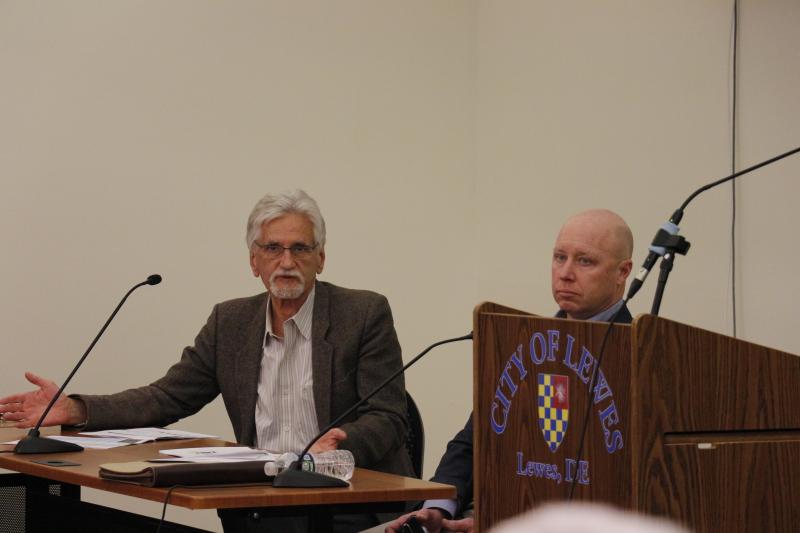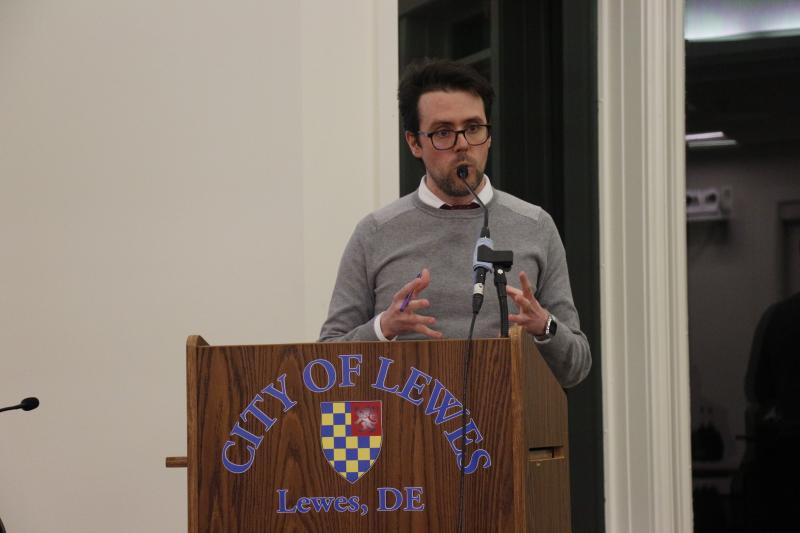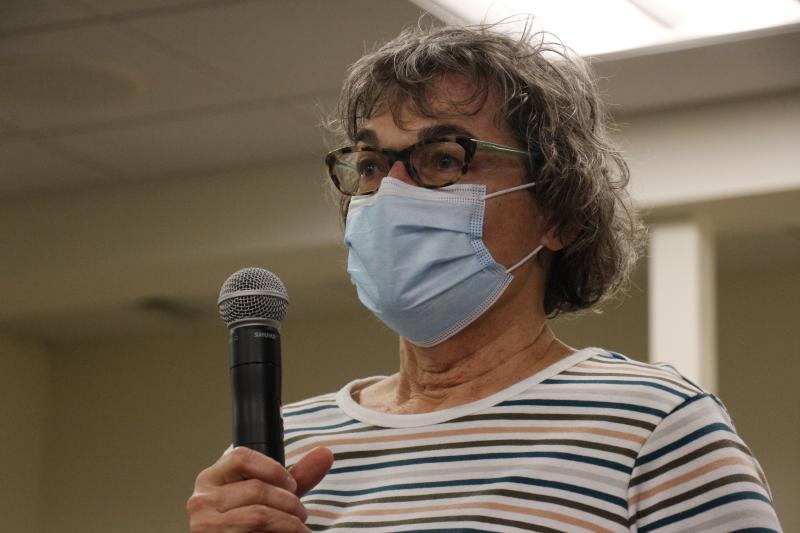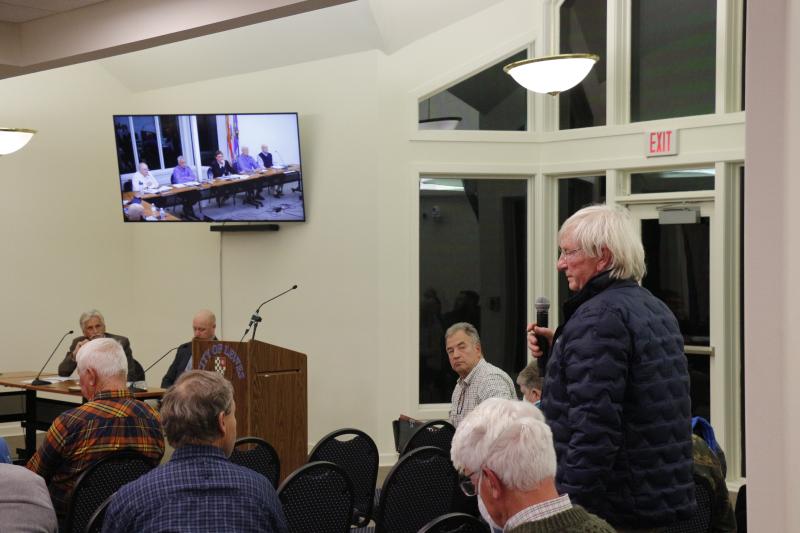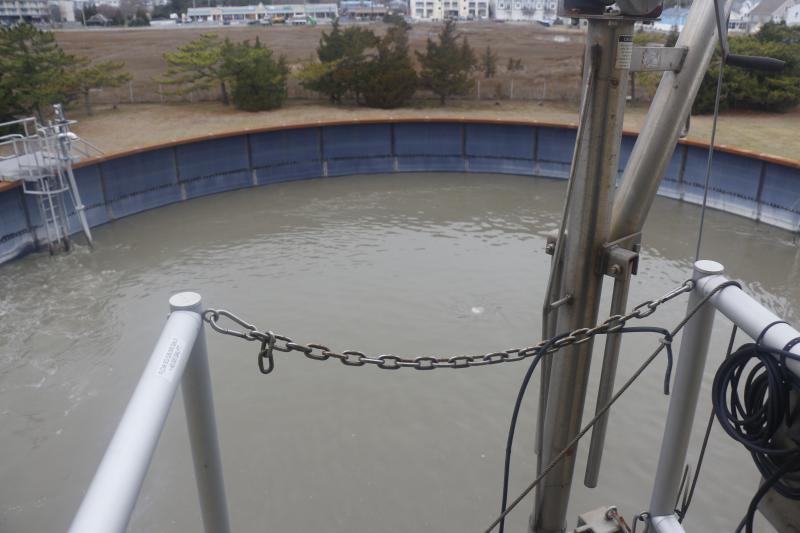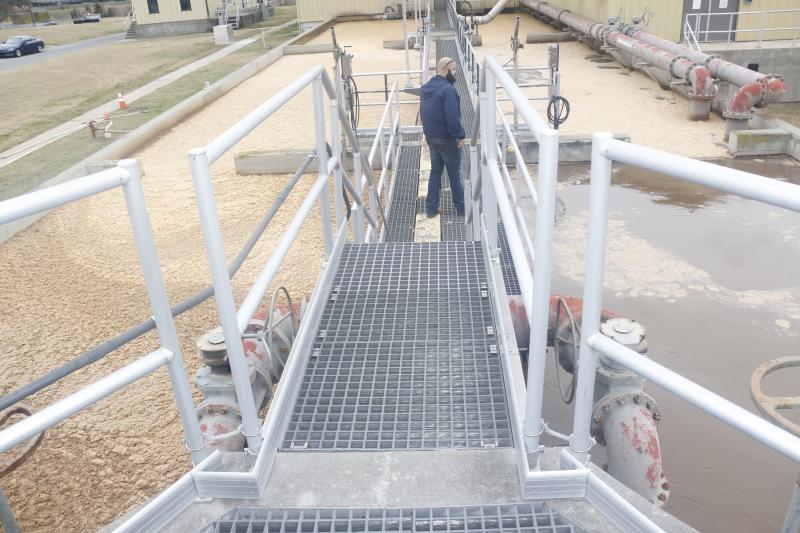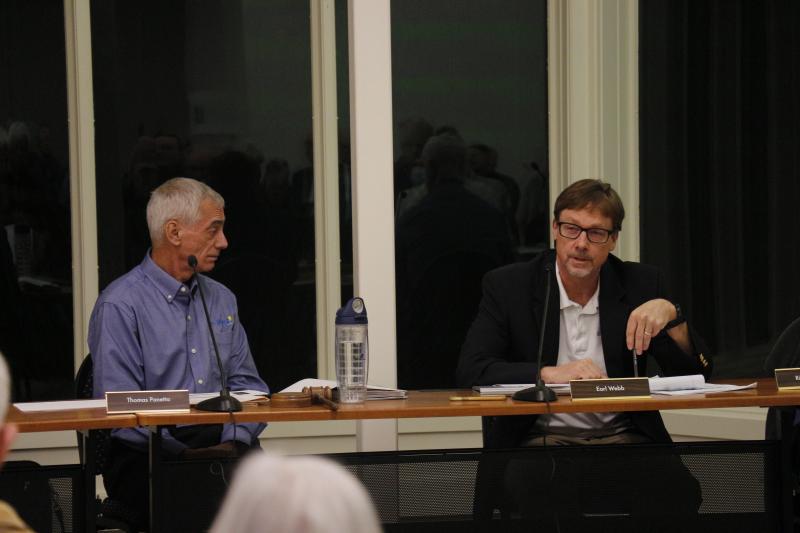Lewes BPW digesting comments on sewer plant options
Lewes residents may be willing to pay a pretty penny for wastewater services to avoid further reliance on Sussex County.
“I am deeply concerned, and I think many other residents are, that our marriage with the county may not be a marriage of like philosophy,” said Lewes resident Dave Ennis during a Jan. 23 Lewes Board of Public Works workshop regarding future plans for wastewater treatment services.
Ennis specifically referred to the Harbor Point neighborhood off New Road where the county permitted a substantial amount of fill dirt despite it neighboring the Great Marsh and the City of Lewes. Joining him in those concerns were several members of the audience at the Rollins Community Center, as they were given a chance to opine on wastewater treatment plant options recently presented in a study by consultant GHD. The Howard H. Seymour Water Reclamation Plant is in the flood zone and will eventually become inoperable if nothing is done.
“There are technical solutions, there are political solutions, there are environmental solutions,” said BPW President Tom Panetta. “We’re here to listen and understand what the public wants or how they weigh each one.”
The study produced three options with six different ways of actualizing those options. The plant could remain in place and become hardened to mitigate the effects of sea-level rise, a new plant could be constructed or the BPW could enter into a partnership with Sussex County. The board sees all options as viable, but the price difference between options is something BPW officials want the public to weigh in on.
The cheapest option is a partnership with Sussex County, which can be accomplished by using the existing Lewes-Rehoboth Canal outfall or the construction of a wetland. Both options would see the county construct a new wastewater treatment plant at its Wolfe Neck facility. The estimated ratepayer impact varies from no change to a 15% increase. Some in the audience at the workshop believed the county’s urgency wasn’t comparable to Lewes’ needs.
“They're coming to us because they have an issue, in my opinion,” said resident Chip Davis. “Rehoboth turned them down. Now they've come to us. So there's a reason for that.”
Hardening the plant to mitigate sea-level rise and flood risks could see rates increase 40% to 55%, which is a substantial increase, but a drop in the bucket compared to building a new plant in Lewes. Estimates have rates going up at least 140%, maybe as much as 420% if ratepayers want a new wastewater treatment facility. Spray irrigation (140% to 155% increase) would be the cheapest choice for a new plant, but it would require 250 acres to build the site. A new plant and new outfall (405% to 420% increase) would impact customers the most and require an outfall through Cape Henlopen State Park to the ocean. Building a new plant but keeping the existing canal outfall could require a rate increase of 230% to 245%.
Barbara Warnell, a Lewes resident concerned about equity in any marriage with Sussex County, said she believes the study did not look far enough into the future. She encouraged more progressive solutions, citing diminished fishing in the area. She said looking 25 years ahead is nothing for an undertaking of this caliber.
Resident Barbara Curtis agreed.
“If we took the county out of the picture and just operated our current wastewater treatment plant with some minor mitigation impacts over the next few years, we might have the time to come to a much more rational, logical and comfortable decision where we would be in control,” she said.
BPW officials said they, along with Sussex County, need to take action on a plan to continue providing effective wastewater treatment services. The two entities have discussed partnering up, but if that does not happen, each will proceed with plans to upgrade services individually. Board members are expected to identify their preferred option in March.
Meeting materials and a link to the video can be found at lewesbpwde.gov. Public comment will be accepted until Monday, Feb. 6.
